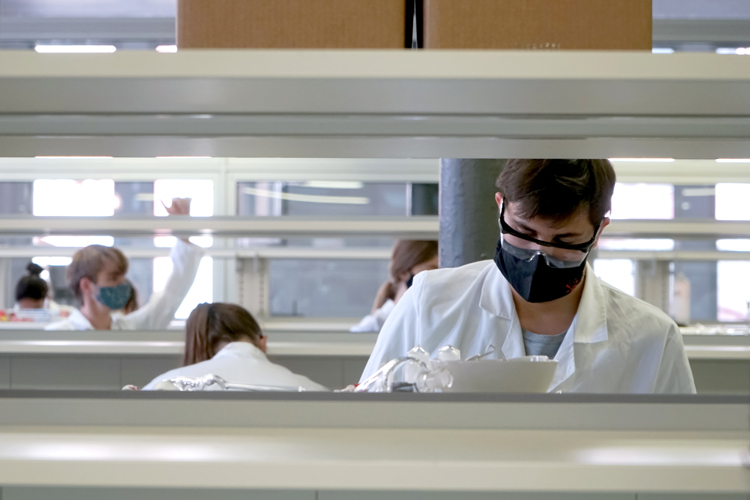IQS participates in the Franco-Spanish cooperative network PROTEOBlood, with the aim of analyzing proteinopathies associated with hematological cancers and developing new individualized therapies for their treatment.

Significant progress has recently been made in the diagnosis and selective treatment of certain blood cancers. Unfortunately, some of these cancers remain incurable, with a great deal of evidence that suggests a bond between the imbalances in protein homoeostasis and the development of certain subtypes of leukaemia and lymphoma.
Under the name PROTEOBlood, researchers from Spain and France have teamed together in a cooperative network with the goal of studying and understanding the mechanisms of action of proteins in the development of blood cancer. This network will study haemostatic proteins in two prevalent types of leukaemia and lymphoma and will research the development of personalised treatments to cure them.
Led by Dr Gaël Roué of the Josep Carreras Leukaemia Research Institute, the PROTEOBlood project features researchers from the Experimental Haematology Group of the Vall d’Hebron Institute of Oncology (VHIO), the Pharmaceutical Chemistry Group GQF of the Instituto Químico de Sarriá (IQS), the Institute of Health and Medical Research – INSERM, the Association Centre for Cooperative Research in Biosciences – CICbioGUNE, the Western Occitaine branch of the French National Centre for Science Research – CNRS, and the Spanish biotech company Anaxomics Biotech.
PROTEOBlood forms part of the European Interreg POCTEFA cooperation programme, which was created to promote the sustainable development of the border region between France and Spain. This project is part of the programme’s “Enhancing innovation and competitiveness” strategic pillar.
PROTEOBlood’s objectives
The researchers in this network are seeking to gain an in-depth understanding of the ubiquitination process, the process that regulates the protein degradation and destruction cycle. Researchers are looking to understand its involvement in cellular disorders which can lead to a blood cancer. They are using cutting-edge proteomic approaches associated with systems biology analysis and molecule design which will allow protein diseases to be fully characterised and effective therapies to be developed.
IQS's contribution
Researchers from the IQS Pharmaceutical Chemistry Group (GQF) will collaborate on this project by studying, designing, and testing inhibitor drugs that block the action of ubiquitin in the development of these types of cancers, providing their extensive experience and expertise in this field of research.
The researchers Dr Roger Estrada, Dr Jordi Teixidó, Dr Ramon Puig de la Bellacasa, and Dr Ana M. Montagut are all participating under the leadership of Dr José I. Borrell, the GQF coordinator.











